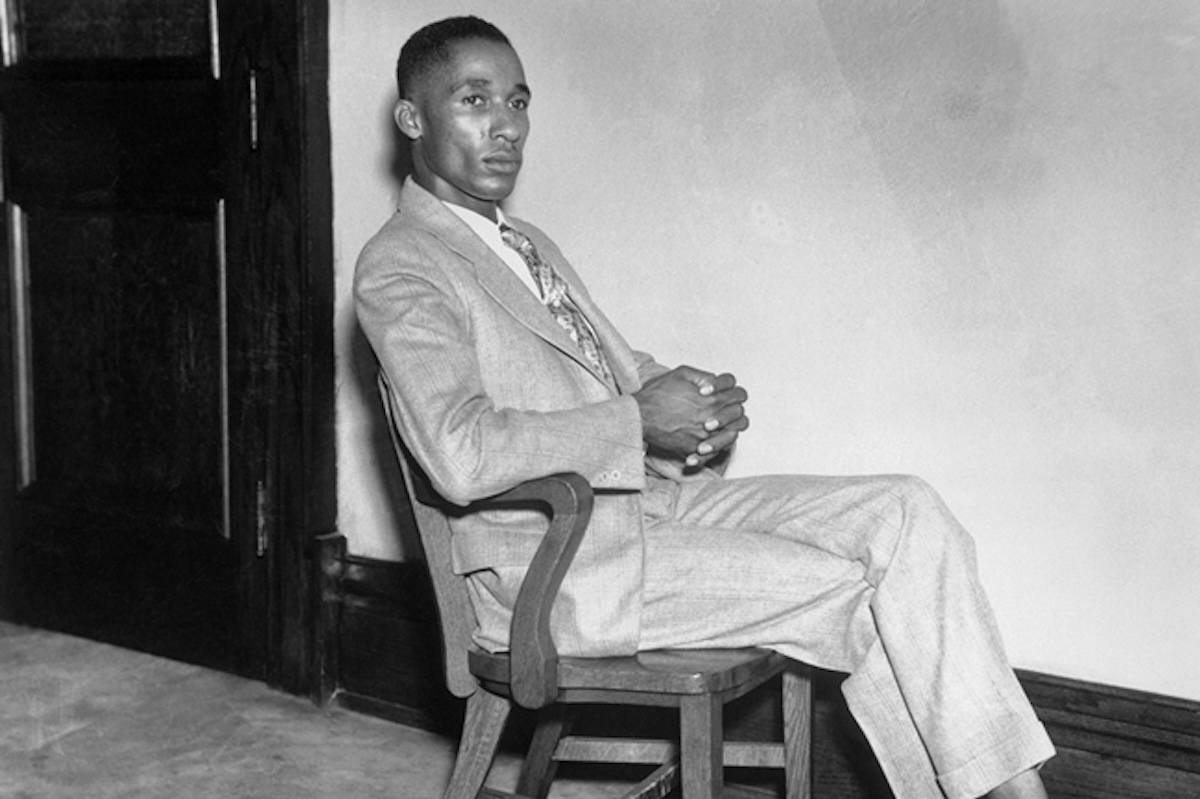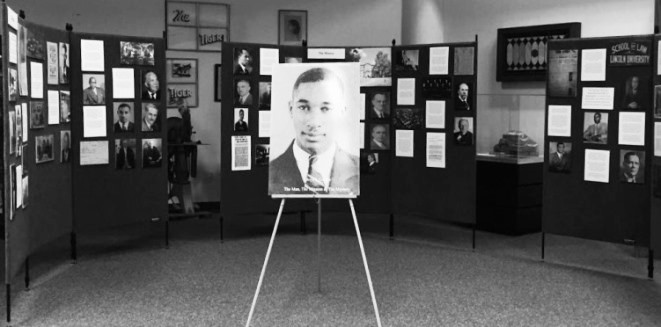Honoring Lloyd Gaines: A Legacy of Courage and Change
Office of Communications and Marketing
Young Hall
820 Chestnut Street
Jefferson City, MO 65101
 Lloyd Gaines, Lincoln University of Missouri Class of 1935.
Lloyd Gaines, Lincoln University of Missouri Class of 1935.
In celebration of Black History Month, Lincoln University is honoring the life and legacy of Lloyd Gaines, a trailblazer in the fight for civil rights and educational equality.
Lloyd Lionel Gaines was born in 1911 in Water Valley, Mississippi, and later became a pivotal figure in the movement to dismantle racial segregation in higher education. After graduating with honors from Lincoln University in 1935, Gaines sought admission to the University of Missouri School of Law. Denied entry solely because of his race, he rejected the state’s offer of an out-of-state tuition scholarship and, with the support of the NAACP, took legal action against Missouri.
His case, Gaines v. Canada (1938), reached the U.S. Supreme Court, which ruled that Missouri must either admit him or establish a separate, equal law school for Black students. This decision set a precedent that helped pave the way for Brown v. Board of Education. In response, Missouri created the Lincoln University School of Law, but before Gaines could continue his legal fight, he mysteriously disappeared in Chicago in 1939. His fate remains unknown, and in 2007, the FBI reopened his case as part of an initiative to investigate civil rights-era cold cases.
Notable Achievements of Lloyd Gaines
- Gaines v. Canada was a critical step toward dismantling the "separate but equal" doctrine, influencing future landmark cases.
- The University of Missouri honored him by naming its Black Culture Center and a law school scholarship after him.
- In 2006, he was posthumously awarded an honorary law degree.
- The Missouri State Bar granted him a posthumous law license.
- A portrait of Gaines now hangs in the University of Missouri School of Law.
Visit the Lloyd Gaines: The Man, The Mission & The Mystery exhibit at Inman E. Page Library Room 317 and online at Blue Tiger Commons.
 Lloyd Gaines: The Man, The Mission & The Mystery exhibit at Inman E. Page Library Room 317.
Lloyd Gaines: The Man, The Mission & The Mystery exhibit at Inman E. Page Library Room 317.
Preserving His Legacy
Below, read a passage on Lloyd Gaines by Mark Schleer, director of the Lincoln University Archives and Ethnic Studies Center.
By Mark Schleer, Lincoln University Archivist
When great Civil Rights pioneers are discussed, the name Lloyd Gaines deserves to be mentioned. A man of humble beginnings, Gaines had dreams and goals for which he was willing to overcome outdated legal, social and educational systems to not only better himself but make a stand for his fellow man. The story of Lloyd Gaines is one of struggle, hope, success and injury. It is a life and legacy to be recognized, admired and celebrated.
The Archives and Ethnic Studies Center of Lincoln University’s Inman E. Page Library recently opened an exhibit honoring esteemed alumni Lloyd Gaines, titled “Lloyd Gaines: The Man, The Mission, & The Mystery.” The exhibit displays biographical information, images and text regarding Gaines’ legal battle against not only the University of Missouri, but the looming entity known as Jim Crow. Also depicted are the aftermath of Gaines’ US Supreme Court victory, his sudden and mysterious disappearance in 1939 and the legacy he left behind. Lloyd Gaines graduated from Lincoln University in Jefferson City, Missouri, in 1935 with a degree in history. In the fall of that year, with encouragement from his college advisor, Dr. Lorenzo Greene, he applied for admission to the University of Missouri School of Law. Denied entry to the institution, the state of Missouri offered to pay Lloyd Gaines’ tuition to attend law school in another state, this being the status quo in previous situations.
Gaines refused, insisting that as a citizen of the State of Missouri he should be allowed to attend the school of his choice. A legal battle of historical proportions faced Mr. Gaines.
Backed by the NAACP and its legal team, led by Charles Hamilton Houston, the case made its way to the United States Supreme Court in 1938. In a 6-2 decision, the court declared to the state of Missouri that they were responsible for providing education for its citizens within the borders of the state. The court gave the state a choice; they could allow Mr. Gaines to attend the University Missouri, or they could provide a “separate but equal” institution. The decision, which had nationwide ramifications, demanded that professional and graduate schools, previously unavailable to African Americans, would have to be provided either by integration or construction. The NAACP’s strategy of fiscal responsibility by the Jim Crow states hampering the cause of segregation began with the Gaines case, serving as the first steppingstone fromPlessey v. Ferguson to Brown v. Board of Education.
